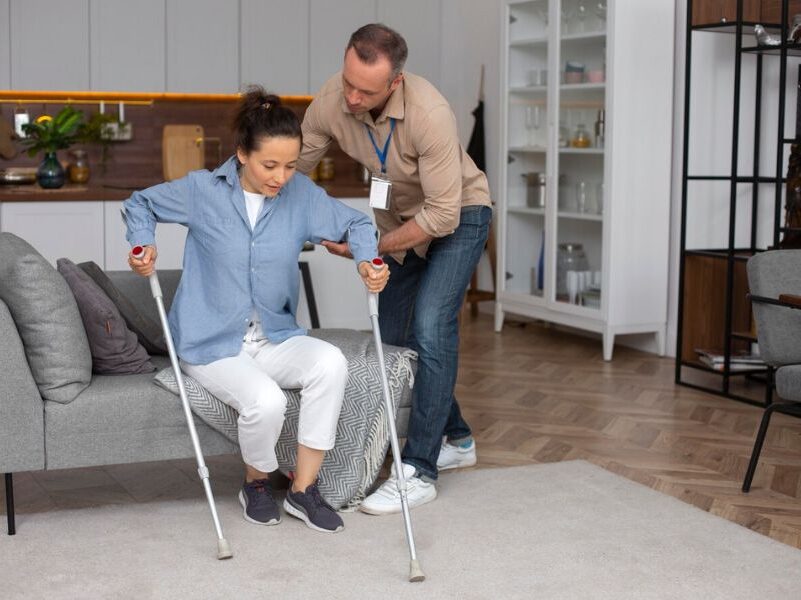In the fabric of modern society, wellness is often extolled as a universal right, yet it remains a challenge for many disabled adults. The discourse surrounding wellness frequently neglects the unique obstacles they encounter, be it physical, emotional, or societal. True wellness is not merely the absence of illness but a holistic state of physical, mental, and social well-being. It is imperative that society adopts a more inclusive approach, ensuring that disabled individuals receive the necessary support to lead fulfilling lives.
Physical Wellness: Accessibility and Support
Physical well-being is a cornerstone of overall health, yet many disabled adults find themselves hindered by inadequate infrastructure and limited resources. Access to medical care, physiotherapy, and appropriate exercise regimens must be prioritised. Public spaces should be designed with accessibility in mind, from step-free access to adaptive fitness programmes tailored to varying needs. Moreover, assistive technologies have the potential to significantly enhance mobility and independence, yet their affordability and availability remain concerns that require urgent attention.
Mental and Emotional Well-being: Combating Isolation
Mental health is an integral component of wellness, and disabled adults often face heightened risks of isolation and depression. The importance of fostering a supportive community cannot be overstated. Encouraging social inclusion through community groups, mentorship programmes, and accessible leisure activities can help mitigate feelings of loneliness. Furthermore, access to counselling and mental health support should be as fundamental as physical healthcare. Society must challenge the stigma surrounding disability and mental health, fostering an environment where individuals feel empowered to seek help without fear of judgement.
Economic and Occupational Wellness: Enabling Independence

Financial independence plays a crucial role in an individual’s well-being. However, disabled adults frequently encounter barriers in employment, from workplace discrimination to inadequate accommodations. Governments and businesses must work together to implement inclusive hiring practices and flexible working arrangements. Vocational training and educational opportunities should be made widely available, ensuring that disabled individuals are equipped with the skills necessary to thrive in the workforce. A society that values diversity in its workforce ultimately benefits from a broader range of perspectives and talents.
Social and Community Engagement: A Sense of Belonging
A thriving society is one where every individual feels a sense of belonging. Social engagement is vital for the well-being of disabled adults, yet many face exclusion from recreational and cultural activities. Efforts should be made to ensure that public spaces, theatres, sports clubs, and other community hubs are truly inclusive. Representation in media and public life also plays a critical role in challenging misconceptions and normalising the presence of disabled individuals in all spheres of society.
The Role of Policy and Advocacy
Ensuring wellness for disabled adults requires proactive policy-making and robust advocacy. Governments must enforce and enhance legislation that protects their rights, from anti-discrimination laws to improved healthcare provisions. Grassroots movements and advocacy groups play a pivotal role in pushing for meaningful change. It is through collective effort that systemic barriers can be dismantled, paving the way for a society where disability is not a hindrance to wellness but a facet of human diversity that is respected and supported.
Conclusion: A Call to Action
The wellness of disabled adults should not be an afterthought but a fundamental aspect of societal progress. A truly inclusive society is one that recognises and accommodates the diverse needs of its members, ensuring that every individual, regardless of ability, has the opportunity to lead a fulfilling and dignified life. It is incumbent upon us all—policymakers, businesses, communities, and individuals—to champion a future where wellness is truly universal.
Through compassion, innovation, and unwavering commitment, we can build a world where disabled adults are not merely accommodated but are actively empowered to thrive.


